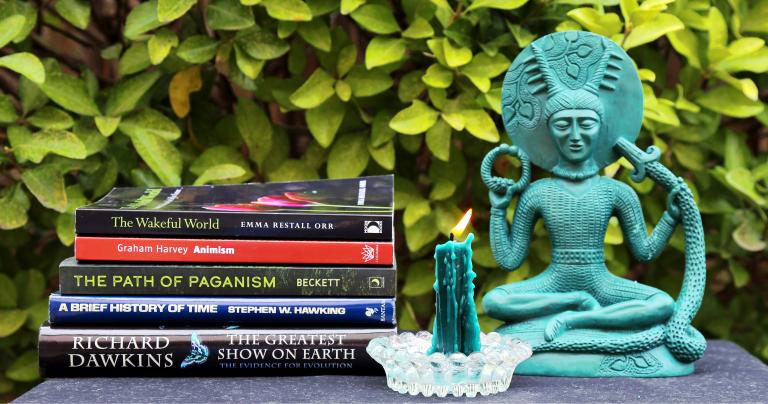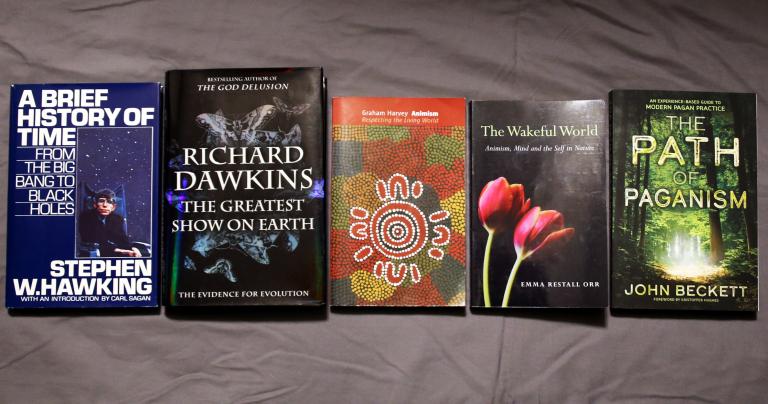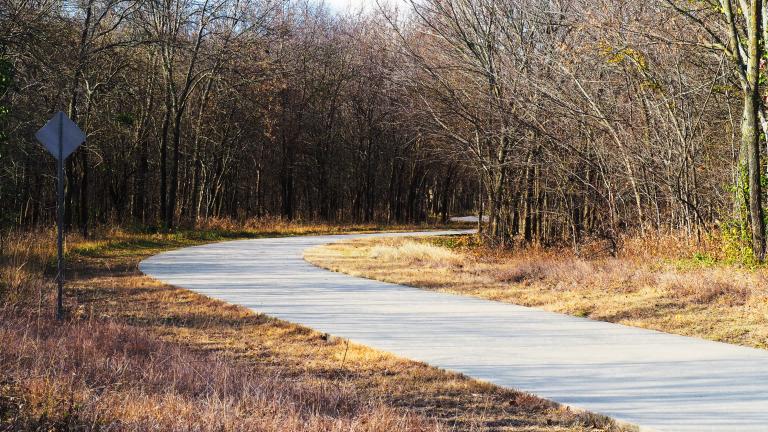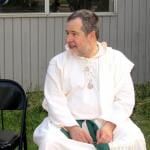A new year is coming, and with it a new on-line class from Under the Ancient Oaks. This one is titled “Building a New Myth: Scientific, Animist, and Polytheist Foundations For the Future.” Registration opens January 2; the class begins January 23 and will run for seven weeks.
Our mainstream society has a problem with myths. Tell one of the stories of our ancestors – especially an ancient story about the Gods – and someone will say “that’s just a myth.” They mean it’s a made-up story that only means what you want it to mean. Or they’ll think they’re being agreeable and they’ll say “there’s a bit of truth in every myth” – as though the only value in a myth is whatever fossilized facts it may contain.
A quote I’ve seen attributed to everyone from C.S. Lewis to Marcus Aurelius says “a myth is a story about things that never were but always are.” Myths are stories that teach timeless truths. Or as I like to say, myths are stories to live by.
We all have stories we live by. The only problem is that we’re unaware of most of them. And many of the stories we unconsciously live by reinforce Christian or materialist assumptions. That makes it hard for us fully integrate our Paganism into our lives.
In my first on-line class “Paganism In Depth,” I tried to help people identify the unstated assumptions in their lives. That turned out to be even harder than I thought. So in this class, we’re going to build a new myth from the ground up. We’re going to walk through the same process I used to change my own myths when I finally got serious about my Paganism.
Source Material
The five books in this picture are the source material for the class. They’re not required reading – you don’t have to buy all of them (or any of them) to take the class. But four of them were extremely helpful to me, and the fifth is the book written on the foundation they provided.
A Brief History of Time by Stephen Hawking (1988). A work of science by one of the greatest scientists of all time, yet still readable by those without a scientific or technical background. This is the best book I’ve found on the origin and nature of the universe.
The Greatest Show On Earth by Richard Dawkins (2009). Richard Dawkins – best known as a militant atheist – is a lousy theologian, but he’s an excellent biologist, and a good writer. Subtitled The Evidence For Evolution, this book provides all we need to understand that we are related to every living thing on Earth.
Animism: Respecting the Living World by Graham Harvey (2005). This is the most helpful book on animism I’ve come across. It explains the practices of contemporary animists with respect and without judgement, and in doing so illustrates what an animist worldview looks like. If you only have the budget or the time for one of these books, make it this one.
The Wakeful World: Animism, Mind and the Self in Nature by Emma Restall Orr (2012). Orr takes a more philosophical approach to animism than Harvey, and as such it’s more naturalistic. I include it because it does an excellent job of explaining how mindedness applies to everything in the world, not just humans.
The Path of Paganism by John Beckett (2017). If you’re a regular reader of this blog you’re familiar with this book. When you combine physics, biology, animism, and a lot of first-hand religious experience, this is what you get.
The Modules
0. Introduction (free)
1. The Story of Myths
2. The Role of Science in a Nature Religion
3. Lessons From The Book of Nature
4. Lessons From Our Deep Ancestors
5. An Inspirited Universe
6. Gods, Spirits, and the Otherworld
7. Building a New Myth
The Details
As with the first class, “Building A New Myth” will be on-demand. Video classes will be released once a week – do them at your own pace.
Module 0 – the syllabus module – will go up January 2. Module 1 will go up January 23, and a new module every week after that. Last time I included a disclaimer “actual frequency may vary” but then I hit every date.
Each module will have homework. Doing it is optional, but if you turn it in, I’ll read it and offer my feedback. No, there will be no grades. I’ll stop reviewing homework about a month after the last class – if you haven’t done it by then you’re probably not going to do it.
I’ll be available to answer questions about the class even after the homework review period has passed.
K.D. Echols has once again graciously agreed to provide written transcripts for those with hearing difficulties – and for those of you who like to read as well as listen.
Costs and Registration
Registration opens January 2. Send me an e-mail or use the contact form on the Under the Ancient Oaks website and tell me you want to sign up. I’ll send you a PayPal invoice. Once you pay it, I’ll register you for the class. Most times this will be done within 24 hours, but if you catch me while I’m traveling or otherwise occupied, it may take longer.
The cost is the same as last time: $50 for the entire class.
A limited number of scholarships are available for those experiencing financial difficulties. If you’d like to apply for a scholarship, just ask.
I’m going to do the scholarships differently this time. I’ll take applications from January 2 until January 16, and I’ll hold all applications until then. I’ll notify everyone of their application status by January 20.
The more paid registrations and contributions I get, the more scholarships I can offer.
Questions?
If you have any questions, contact me here or at any of the usual places.




















